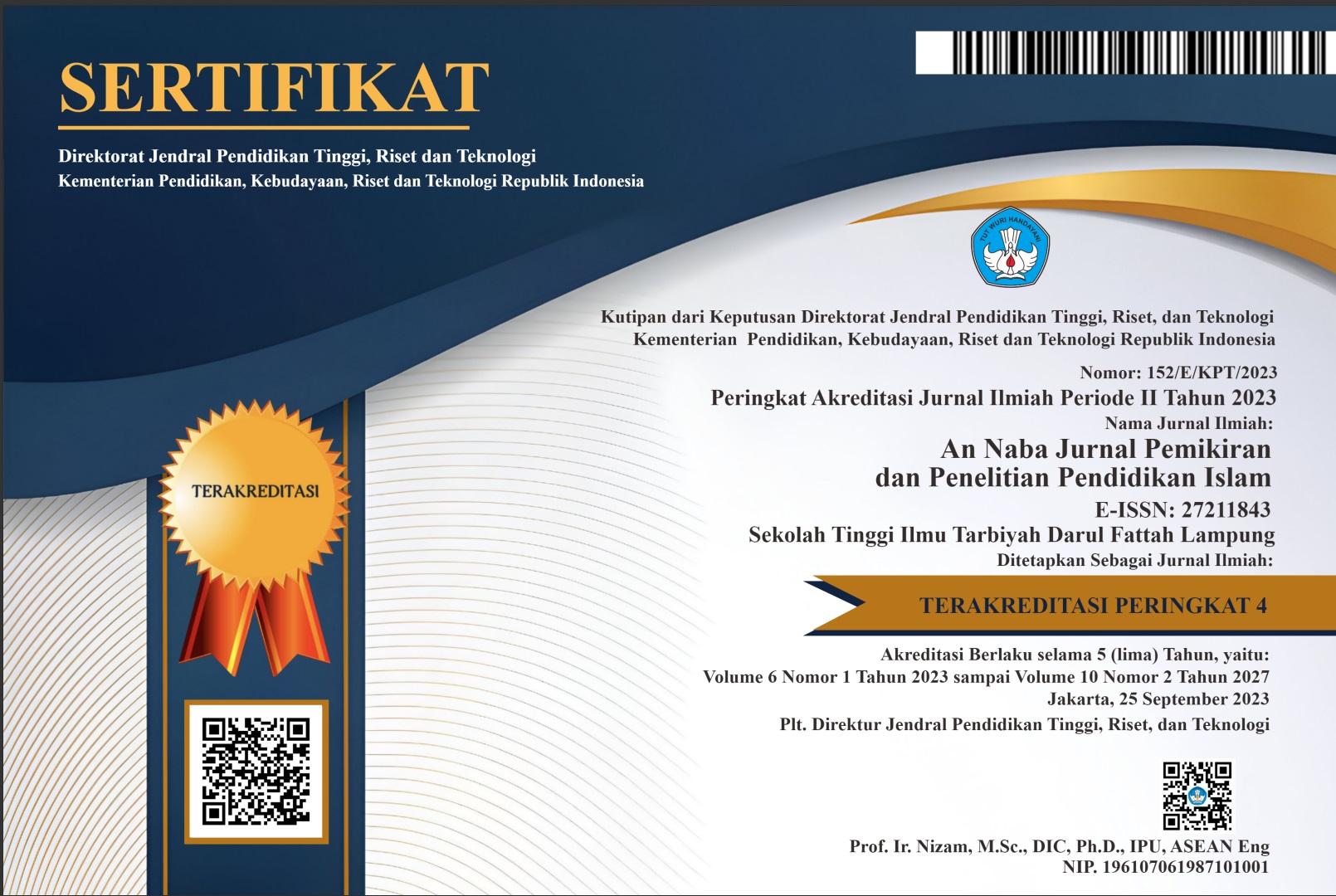KONSEP ANARKISME EPISTIMOLOGIS PAUL KARL FAYERABEND DALAM PENDIDIKAN ISLAM
KONSEP ANARKISME
Abstract
Islamic education is a pillar of the scientific in embodying the values of Islamic teachings through education in the form of learning, knowledge, skills, and directing a person to be able to manage their lives through teaching, training, or research. Islamic education became the center of public attention while the theory components subjected to dismissal and stagnate in the development and management pattern. The times and the demands of the reorientation of education globally impacted on the paradigm shift of Islamic education to emphasise the value of critical transformative without leaving the transcendental values in practice. Paul Fayerabend Epistimologi anarchism is a driving force in improving the function of the theory of Islamic education pragmatically over the scope of his theories in the modernization of the current era, the theoretical concept is theoretical anarchism that is based with the historical reasons that the history of science is not only a charged facts and conclusions, but also uncharged ideas and interpretations of the facts themselves and the problems arising as a result of errors of interpretation as well as a movement of protest against the theoretical scientific methods that are considered capable of taking the whole object of research.
Downloads
References
Arif, Mahmud , 2008. Pendidikan Islam Transformatif, Yogyakarta: LKIS
Arkoun, Muhammad, 1986. Tārikhiyyat al-Fikr al-‘Arabi al-Islāmi, Beirut: Markaz al-Inma’al-Qaumi
Bagus, Lorens, 1996. Kamus Filsafat. Jakarta: PT Gramedia Pustaka Utama.
Bakar, Osman, 1997. Hierarki Ilmu: Membangun Rangka Pikir Islamisasi Ilmu Menurut al-Farabi al-Ghazali, Quthb ad-Din asy-Syirazi, Bandung: Mizan
Bartens, K, 2005. Panorama Filsafat Modern. Jakarta: PT Mizan Publika.
HM, Arifin, 1987. Filsafat Pendidikan Islam, Jakarta: Bina Aksara
M. Jawwad Ridla, 2002. Tiga Aliran Utama Teori Pendidikan Islam : Perspektif Sosiologis-Filosofis, terj. Mahmud Arif, Yogyakarta: Tiara Wacana
M. Munir Mursi, 1977. at-Tarbiyah al-Islāmiyyah: Ushūluhā wa Tathawwuruhā fī al-Bilād al-‘Arabiyyah, Kairo: ‘Alamu al-Kutub
Marwah, Husein , 2002. an-Naz’at al-Māddiyyah fi al-Falsafah al-‘Arabiyyah al-Islāmiyyah, Beirut: Dār al-Farabi
Muhaimin, 2009. Rekonstruksi Pendidikan Islam Dari Paradigma Pengembangan, Manajemen Kelembagaan,Kurikulum hingga Strategi Pembelajaran, Jakarta: PT Rajagrafindo Persada
Santoso, Listiyono dkk, 2010. Seri Pemikiran Tokoh Epistimologi Kiri. Yogyakarta: Ar-ruzz media.
Snijiders, Adelbert, 2006. Manusia dan kebenaran sebuah pengantar Filsafat Pengetahuan. Yogyakarta: Kanisius.














.png)







